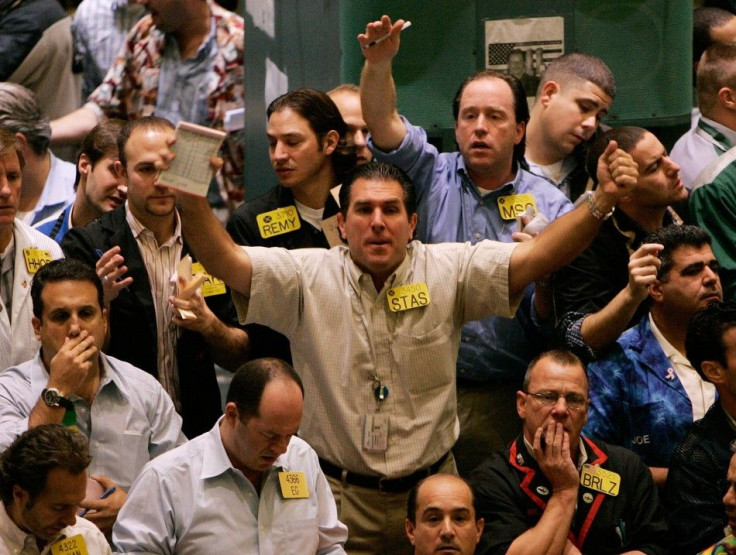Oil Prices Above $100 Indicate Institutional Investors See Ongoing U.S. Economic Expansion
ANALYSIS

If you don't have the time to scrutinize U.S. and Europe/Asia economic data points daily, but you still want a quick-read on the U.S. economy, use the price of oil as a shorthand.
Oil: A Telling Barometer
The price of oil is a good, rough barometer for the U.S. economy. Don't misunderstand: it's not a perfect barometer, but it does provide a rough indicator of how the U.S. economy is faring, as well as the outlook for the world's largest economy.
Here's why:
Oil is the lifeblood of the U.S. economy, and, to a lesser extent, of the global economy. Oil is the world's most vital commodity. (That is, until some other plentiful, cheap, portable energy form comes along/is discovered to displace it.)
Therefore, start with a neutral price of $70 per barrel in 2011 dollars (current dollars). That's equal to about a $51 per barrel price for oil in 1999 dollars.
The $70 price is relatively high and it's a level that makes almost every oil exploration project -- save selected oil sands and other non-conventional oil projects -- profitable.
Now, for a variety of reasons, the price of oil can't stay above $70 per barrel if the U.S. economy slumps and/or if the global economy falls into a recession.
Conversely, oil's price is unlikely to drop below and remain below $70 per barrel for a sustained period (six months or longer), if the U.S. economy is growing at a healthy rate.
To be sure, there are exceptions to the above rules. if the U.S. experiences a period of high inflation, or if a sustained war breaks out in the Middle East, or if a major oil producer (Russia, Saudi Arabia, Iran, Venezuela, or Mexico) cuts off oil production to the U.S./world, oil's price would jump, and GDP in the U.S./world would slump.
To monitor oil's price, check out the International Business Times' commodities page, by clicking here.
Another good chart is at stockcharts.com.
Oil closed Friday up 46 cents to $101.42 per barrel. The price quoted is West Texas Intermediate crude, and for a variety of reasons, it's lower than Brent Crude.
But use West Texas Intermediate: if the price continues to vector above $100, know that the institutional investors (IIs) -- the finance world's most knowledgeable players -- are becoming more optimistic about the U.S. economy.
Conversely, if oil falls below $70 and remains below it, know that IIs are becoming more bearish -- pessimistic -- about the U.S. economy.
Oil/Economic Analysis: How has the price of oil fared recently? And what's that price saying about the U.S. economy? At $101 per barrel, it's well above the $70 demarcation line.
Further, the fact that oil's price has remained above $80 for the past two months, and also quickly recovered after dipping below $80 three times since June, is a sign that institutional investors believe better quarters are ahead for the U.S. economy.
And recent U.S. economic data supports the oil/U.S. economy link. Lower jobless claims, three months of more than 100,000 new jobs created, an expanding manufacturing sector, an uptrend in U.S. vehicle sales, adequate corporate earnings, and rising consumer sentiment indicate a U.S. economy that continues to expand -- and this despite the concern/danger to credit markets that the to-date unresolved Europe debt crisis presents. In other words, the price of oil above $100 is a statement by institutional investors that they see an ongoing U.S. economic expansion -- probably one that's gaining a modest amount of steam -- and growing emerging markets combining to increase global oil demand in 2012.
Keep in mind that institutional investors are always looking six to nine months ahead -- and it is that expected increase in oil demand from a expected strengthening U.S. economy that's largely responsible for oil's return to the $100 level.
New Energy Form Caveat
Of course, the oil barometer will not be valid after another universal energy form is discovered.
But don't hold your breath waiting for that to happen.
- -
© Copyright IBTimes 2025. All rights reserved.





















